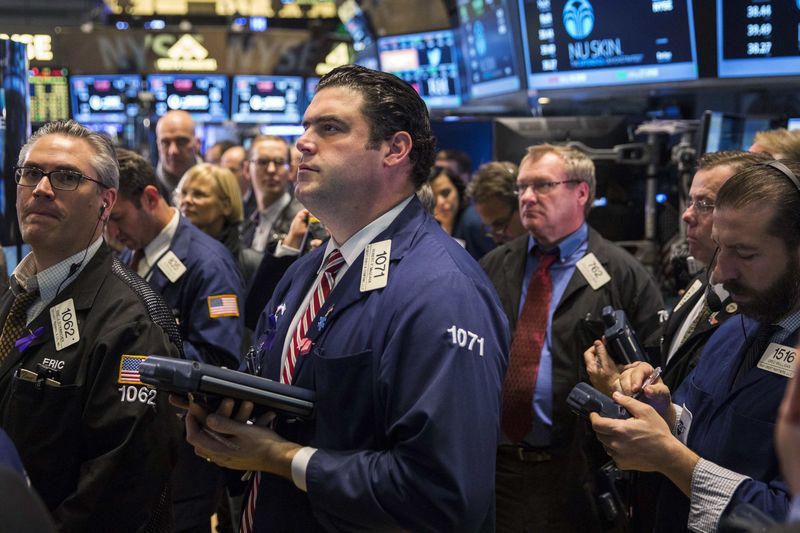Investing.com - The first full trading week of 2020 looks likely to be action packed with geopolitics firmly back on top of the market agenda after a spike in oil prices in the wake of the U.S. killing of a top Iranian commander. Investors will also be watching out for the first U.S. jobs release of the decade and fresh details on the phase 1 U.S.-China trade deal. Here’s what you need to know to start your week.
- Oil back on the boil
Oil prices spiked on Friday after the U.S. killed a leading Iranian military commander in an air strike, heightening fears of a conflict in the Middle East that could disrupt energy supplies.
U.S. crude rose 3% while global benchmark Brent jumped 3.6% to more than $68 a barrel. The last time Brent hit these levels was in mid-September, when an attack on Saudi Arabian crude facilities sparked the biggest price jump in more than 30 years. Whether the increase in oil prices will be sustained hinges on if, when, and how Iran retaliates to the killing of General Qassem Soleimani.
September's oil price spike was short lived as Riyadh didn't respond to the attacks, which the U.S. blamed on Iran and which Iran in turn denied. However, if Iran fulfils its threat of "severe retaliation" now it could well magnify market moves.
- Geopolitical risk premium
Global markets could remain under pressure in the coming days, with analysts expecting to see defensive stocks outperforming, downward pressure on Treasury yields and gains for safe-haven currencies.
Wall Street's major indexes fell from record highs on Friday, with the S&P 500 sliding 0.7%, snapping five weeks of gains for the index. Besides the escalation in Middle East tensions a bigger-than-expected contraction in the U.S. manufacturing sector raised concerns of slowing economic growth.
"There was a reinforcement of weak manufacturing activity and then you had the geopolitical spark," said Michael Antonelli, market strategist at Robert W. Baird in Milwaukee. "That's on top of the sentiment that the market has been overbought."
- U.S. jobs report
A key question in global markets over recent months has been whether weakness in manufacturing will begin to hit jobs growth. In the U.S., the labor market has stayed relatively resilient despite weakness in factory activity and this along with solid wage growth has underpinned consumer confidence.
The final U.S. jobs report of 2019 showed that 266,000 jobs were added in November, the most in 10 months while the jobless rate of 3.5% was the lowest in half a century. December’s jobs growth is forecast to have eased to 160,000.
The labor picture suggests that President Donald Trump's trade war with China has not had much impact on the broader economy, which expanded at a 2.1% pace in the third quarter. Manufacturing hiring did take a hit, but hopes are high for a Phase 1 trade deal on Jan. 15.
- Trade deal
Nearly two years of brinkmanship, stop-start negotiations and tit-for-tat tariffs could end on Jan. 15, the date that President Trump says will see Beijing and Washington sign a Phase 1 trade deal. But China has kept quiet on the subject and investors don't know for sure what the deal text will actually say, keeping global markets on edge.
In recent days, Chinese markets have basked in the afterglow of upbeat retail sales data, solid manufacturing gauges and fresh stimulus measures with the central bank slashing banks' reserve ratio requirements. But what next? Services PMIs published on Monday will be crucial, as will Thursday's inflation figures. Tuesday will bring data on central bank reserves, indicating whether Beijing's $3 trillion war chest is growing or diminishing.
- Brexit bill
Britain’s parliament will reconvene on Jan 7 and will debate the divorce deal Prime Minister Boris Johnson has agreed with Brussels. The bill goes to parliament's upper house on Thursday and should allow Johnson to fulfil his pledge to "get Brexit done" by Jan. 31.
But concerns over the prospect of a no-deal Brexit are still weighing on the British pound, which is back below $1.31, from December highs above $1.35. Once parliament approves the agreement, the clock starts ticking on Britain's future trade relationship with the EU. If an agreement isn't reached by end-2020, the outcome may yet be that Britain leaves the EU without trade arrangements in place.
However, with one Brexit step likely taken by the end of the month, sterling could react more than last year to economic data. The final reading of December's U.K. services activity on Monday is expected to show a slight uptick though stay in contraction territory below 50. House price data on Wednesday could also offer clues on the strength of the property market now that there is a bit more Brexit clarity.
--Reuters contributed to this report
